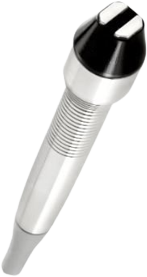Relief for Watery, Burning Eyes
What is dry eye?
Dry eye is a chronic condition in which the body does not produce enough quality tears to sufficiently lubricate the eye. Without tear lubrication, the eyes may become irritated, causing burning, itchiness and excessive watering. Patients with severe cases of dry eyes may actually experience vision impairments caused by damage to the surface of the eye. Fortunately, dry eye treatments are available to help the eye produce more of its own natural tears and also manage inflammation.
Did you know…
Dry eye is a very common condition among residents over age 50? The American Academy of Ophthalmology reports that nearly 4.9 million Americans over age 50 are suffering from dry eye, with women outnumbering men nearly 2 to 1. There are many reasons why people develop dry eye, including environmental conditions, the use of certain medications, and the long-term use of contact lenses.
What Do I Do?
The best way to know if your dry eye symptoms need treatment is with a thorough exam at Estero Optics.
Our advanced diagnostic testing goes beyond routine screenings to measure tear quality and eye surface health.
Schedule your consultation now for personalized treatments designed to bring lasting relief.
Envision Radio Frequency and IPL (Intense Pulse Light) Device
Dry Eye Treatment by Inmode
INMODE’S NON-SURGICAL ALTERNATIVES TO TREAT THE CAUSE OF DRY EYE
Envision offers a non-drug therapy to improve your vision and quality of life!
Ask us about the revolutionary way we can quickly treat your Dry Eye symptoms.
Forma-l
Forma-l (bipotar radiofrequency) addresses the symptoms of dry eye disease (DED) caused by Meibamian Gland Dysfunction (MGD). Intended for use in the the periorbital area and upper and tower lids and relieves inflammation of Meibomian glands and eye irritation.
INMODE Forma-| Radiofrequency treatment (RF) uses Radio-Frequency energy to generate heat which is applied to the skin around the eyes. This heat stimulates collagen formation, bringing white blood cells, and stem cells to the skin around your eyes while reducing inflammation. The main benefits of RF are:
- Safely heating Meibomian glands for expressions
- Tightening existing collagen at the dermal layer
- Stimulating the production of NEW collagen in the deeper dermis
This treatment aids in opening up clogged Meibomian glands, allowing for improved tear production and secretion.


Lumecca-l
Lumecca-l is an effective treatment of benign pigmented epidermal lesions and benign cutaneous vascular lesions.Lumecca was developed with an advanced xenon flash lamp producing 40%. of total pulse energy in the 500- 600 nm range. IPL energy penetrates the skin and is selectively absorbed by lesion chromophores (melanin or hemoglobin).
INMODE Lumecca Intense Pulse Light treatment (IPL) works to control the inflammatory process and to stop the vicious cycle of inflammation and to reduce the need for medications. IPL treats ocular rosacea. Meibomian Gland Dysfunction, and Inflammatory dry eye. IPL treatment invoives flashes of light to the skin around the eyelids and face Light gets absorbed by the mitochondria of the Meibomian Glands, This helps to switch on the Glands. They become ‘younger and more active. It has been shown to decrease demodex and bacteria around the eyelids. The powerful bursts of light also close off blood vessels that release inflammation in ocular rosacea. The Glands produce better Meibomian Oil and improve dry eyes. IPL also kills bacteria and Demodex on the surface of the eyelids
What should I expect during treatment for dry eye?
There are several ways of treating dry eye. Together with your optometrist, you will decide upon the treatment that best fits your needs. This may include supplementing your natural tears with artificial solutions that can be purchased over-the-counter at most drug stores. You may also be prescribed a medication designed to increase natural tear production. In some cases, eye doctors may recommend conserving natural tears and preventing them from draining by blocking tear ducts or surgically closing them altogether.
Will I need to follow any special instructions during treatment?
You can continue to treat your dry eye with eye lubricating drops that provide temporary relief. Some patients also experience improvements in natural tear production by consuming an omega-3 supplement. Other steps you can do to minimize symptoms include wearing sunglasses outdoors, using a humidifier in your home, and remembering to blink when watching television or staring at a computer screen.
experience the difference
Your Expert in Vision Care
Our mission is to provide our community with quality vision care by working with pride, integrity and heart in all that we do. Estero Optics is always introducing the latest innovative technologies and treatment options to keep you and your family healthy with the latest vision care solutions.

